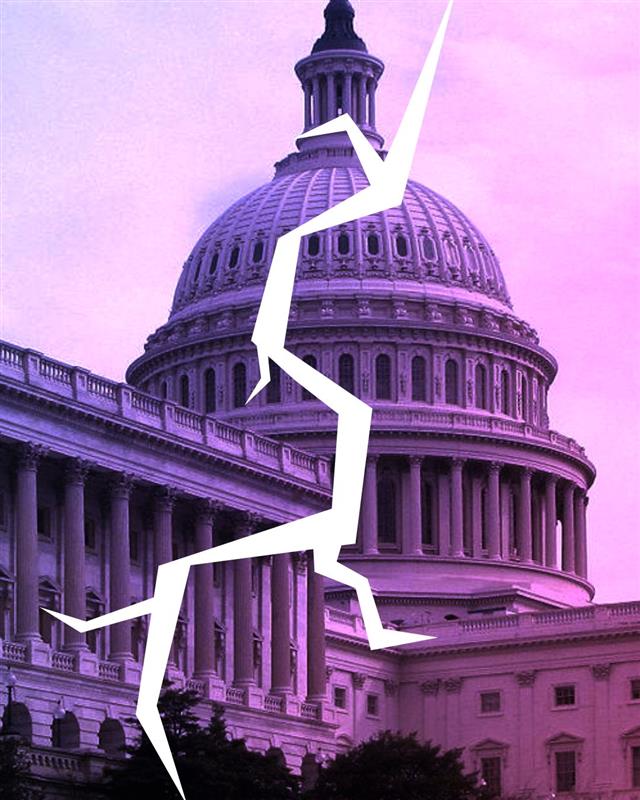A Senate procedural rule that forces compromise or creates gridlock, depending on who you ask
The big picture
The filibuster is one of the most controversial procedural rules in the U.S. Senate. Depending on which party is in power, it is either seen as a safeguard for bipartisan compromise or an obstacle to passing critical legislation. While both Democrats and Republicans have tried to eliminate it when they held control of the Senate, independent voters should take a broader view. The filibuster plays a key role in determining how laws are made—or blocked—and affects the stability of our government.
Zooming in
What is the filibuster?
The filibuster is a procedural rule in the Senate that allows a minority of senators to delay or block legislation by extending debate. It requires a supermajority of 60 votes to end debate and move forward with a final vote on most legislation. This can prevent one party from pushing through sweeping changes without at least some bipartisan support.
Filibusters date back to the earliest days of the Senate. The first recorded use was in 1789 when senators attempted to delay a bill about the nation's capital, according to William Maclay’s journal. The modern filibuster took shape in 1917, when the Senate adopted a rule allowing a two-thirds majority to end debate—a process known as cloture. This threshold was lowered to three-fifths (60 votes) in 1975.
When has the filibuster been challenged?
Both parties have attempted to weaken or eliminate the filibuster when it suited their interests:
- 2012-2013: Sen. Jeff Merkley (D-OR) proposed strengthening the “talking filibuster” to force senators to physically hold the floor.
- 2013: Senate Democrats, led by Majority Leader Harry Reid, lowered the cloture threshold to a simple majority for judicial and executive nominations (except for the Supreme Court).
- 2017: Senate Republicans, led by Majority Leader Mitch McConnell, extended this change to Supreme Court nominations.
- 2017-2018: Then-President Trump repeatedly called for eliminating the filibuster to pass his legislative agenda. Even Sen. Ted Cruz (R-TX), who had previously defended it, changed his position.
- 2022: Senate Majority Leader Chuck Schumer (D-NY) attempted to eliminate the filibuster for voting rights legislation. However, Sens. Joe Manchin (D-WV) and Kyrsten Sinema (D-AZ) voted against the effort, keeping the rule intact.
- 2024: Rep. Pramila Jayapal (D-WA), leader of the Congressional Progressive Caucus, admitted that her stance on the filibuster depends on which party is in power.
How does the filibuster impact legislation?
The filibuster has been used to block a wide range of bills, from civil rights legislation in the 1950s and 60s to more recent efforts on voting rights, gun control, and healthcare.
Supporters argue that it forces bipartisan compromise and prevents radical policy swings when power shifts between parties. Critics say it creates gridlock, allowing a small minority to block legislation supported by a majority of Americans.
The number of cloture motions filed—a measure of how often the filibuster is used—has dramatically increased in recent years. In the 107th Congress (2001-2002), 71 cloture motions were filed, while in the 117th Congress (2021-2022), 336 cloture motions were filed. The full breakdown can be found in Senate records.
Data snapshot
- 60 votes are required to break a filibuster in the Senate.
- The longest individual filibuster lasted 24 hours and 18 minutes, when Sen. Strom Thurmond (D-SC) tried to block the 1957 Civil Rights Act.
- Since 1917, over 2,000 cloture motions have been filed to end filibusters.
- The 117th Congress (2021-2022) saw 336 cloture motions, the most in history.
- A bipartisan group of over 60 senators signed a letter in 2017 opposing changes to the filibuster.
Independent lens
Independent voters value stability and accountability in government. The filibuster ensures that major legislation requires some bipartisan agreement, preventing extreme swings in policy every time power shifts. However, when used excessively, it can contribute to legislative paralysis, preventing needed reforms on issues like the national debt, healthcare, and immigration.
Rather than focusing on short-term political wins, Congress should consider filibuster reform that maintains its role in encouraging compromise while preventing legislative gridlock.
Subscribe to our newsletter to stay informed on how independent voters are shaping America’s future.




%201.jpg)
